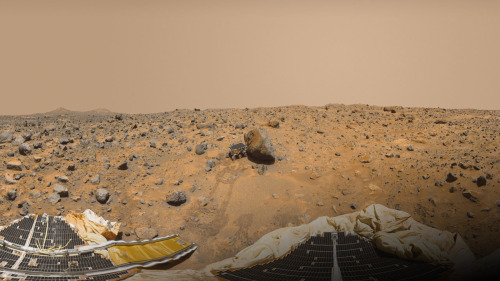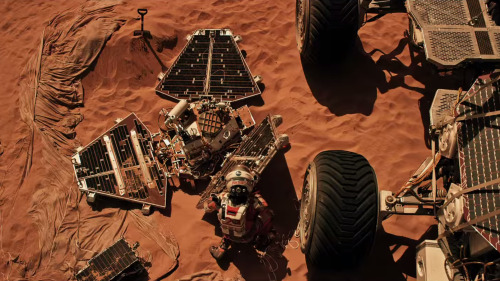In Memory Of The Crew Of Apollo 1, January 27, 1967.

In memory of the crew of Apollo 1, January 27, 1967.
More Posts from Darggga-blog and Others

Apollo 11 astronaut Buzz Aldrin on the Moon with Neil Armstrong refected in the visor, July 20, 1969. (Florida Memory)





The 49th Anniversary of the Apollo 1 Fire begins today as it happened on January 27th, 1967

Apollo 12 astronauts train for the Moon, September 1969.

Infographic about Planet 9, the required planet to explain the trajectory of six of the most distand known Kuiper Belt Objects.
Source: http://imgur.com/S5faizX
https://m.facebook.com/story.php?story_fbid=10157485756070131&id=353851465130
Spacex's rocket landing. Again.

The Milky Way and Andromeda above Yosemite’s Valley and Half Dome
Source: https://imgur.com/Y64D076


Mars Pathfinder & Sojourner Rover (360 View) Explained
Thanks to new technology, we can take a 360-degree tour of the 1997 Pathfinder mission landing site, including Sojourner, the first Mars rover. Check out this interactive YouTube panorama, and then…
…keep scrolling to find out more about each point of interest, how the Pathfinder mission compares to “The Martian” and NASA’s real Journey to Mars.

Yogi
“Yogi” is a meter-size rock about 5 meters northwest of the Mars Pathfinder lander and the second rock visited by the Sojourner Rover’s alpha proton X-ray spectrometer (APXS) instrument. This mosaic shows super resolution techniques applied to help to address questions about the texture of this rock and what it might tell us about how it came to be.

Twin Peaks
The Twin Peaks are modest-size hills to the southwest of the Mars Pathfinder landing site. They were discovered on the first panoramas taken by the IMP camera on the July 4, 1997, and subsequently identified in Viking Orbiter images taken over 20 years ago. They’re about 30-35 meters tall.

Barnacle Bill
“Barnacle Bill” is a small rock immediately west-northwest of the Mars Pathfinder lander and was the first rock visited by the Sojourner Rover’s alpha proton X-ray spectrometer (APXS) instrument. If you have some old-school red-cyan glasses, put them on and see this pic in eye-popping 3-D.

Rock Garden
The Rock Garden is a cluster of large, angular rocks tilted in a downstream direction from ancient floods on Mars. The rocky surface is comprised of materials washed down from the highlands and deposited in this ancient outflow channel.

MOAR INFO
Pathfinder Lander & Sojourner Rover
Mission Facts [PDF]
Science Results
Rock & Soil Types


This vista was stitched together from many images taken in 1997 by Pathfinder.

Pathfinder and Sojourner figure into Mark Watney’s quest for survival on the Red Planet in the book and movie, “The Martian.” See JPL’s role in making “The Martian” a reality: http://go.nasa.gov/1McRrXw and discover nine real NASA technologies depicted in “The Martian”: http://go.nasa.gov/1QiyUiC.

So what about the real-life “Journey to Mars”? NASA is developing the capabilities needed to send humans to Mars in the 2030s. Discover more at http://nasa.gov/journeytomars and don’t forget to visit me when you make it to the Red Planet. Until then, stay curious and I’ll see you online.

Solar System by Breath Art
Crazy Facts About the #YearInSpace
Astronaut Scott Kelly and Russian cosmonaut Mikhail Kornienko returned from their One-Year Mission on March 1. When you spend a year doing anything, you’re bound to accumulate some crazy stats. Here are a few:

During their year in space, Kelly and Kornienko traveled over 143 million miles, conducting research to prepare us for our journey to Mars, which will be about 140,000,000 miles from Earth.

The International Space Station travels at a speed of 5 miles per second and orbits the Earth every 90 minutes.

These visiting vehicles brought food, supplies, experiments and more crew members to the space station.

Since the space station is orbiting the Earth at 17,500 miles per hour, the crew onboard sees 16 sunrises and sunsets each day.

Water is a precious and limited resource in space, so crew members recycle it whenever possible. That includes recycling their own urine.
Make sure to follow us on Tumblr for your regular dose of space: http://nasa.tumblr.com






Almost a month ago, the spaceflight company Blue Origin sent a rocket up to the edge of space and then guided it gracefully back down to earth, intact. It was a historic first.
But Blue Origin’s major competitor, SpaceX, was quick to point out that the rocket wasn’t going fast enough (or sideways enough) to place a satellite into orbit - just 4,600 kph (~2,860 mph). It went straight up, and then straight down.
Now, SpaceX has managed to put 11 satellites in orbit with a “reusable” rocket. Their rocket didn’t just go up and down - it reached a horizontal velocity of 6,000 kph (3,600 mph) before returning to earth. If SpaceX is able to refurbish the rocket and use it in another launch, they’ll have figured out a way to dramatically reduce the cost of spaceflight.
Here’s the full webcast. And here’s the full story.
Video credit: SpaceX
-
 tresfoufou liked this · 3 years ago
tresfoufou liked this · 3 years ago -
 ya-oryol liked this · 5 years ago
ya-oryol liked this · 5 years ago -
 vehlow liked this · 8 years ago
vehlow liked this · 8 years ago -
 sangocrayon liked this · 8 years ago
sangocrayon liked this · 8 years ago -
 live-2-learn liked this · 8 years ago
live-2-learn liked this · 8 years ago -
 loveh20 liked this · 8 years ago
loveh20 liked this · 8 years ago -
 merseawaves liked this · 8 years ago
merseawaves liked this · 8 years ago -
 frankievelvet7 liked this · 8 years ago
frankievelvet7 liked this · 8 years ago -
 chocchipwookiee liked this · 8 years ago
chocchipwookiee liked this · 8 years ago -
 landofshadowandthorns reblogged this · 8 years ago
landofshadowandthorns reblogged this · 8 years ago -
 wenrina-blog liked this · 9 years ago
wenrina-blog liked this · 9 years ago -
 kymyst007 liked this · 9 years ago
kymyst007 liked this · 9 years ago -
 wowsmcgee liked this · 9 years ago
wowsmcgee liked this · 9 years ago -
 starchildchampion-blog reblogged this · 9 years ago
starchildchampion-blog reblogged this · 9 years ago -
 bobbleheadbooks liked this · 9 years ago
bobbleheadbooks liked this · 9 years ago -
 pb1958 liked this · 9 years ago
pb1958 liked this · 9 years ago -
 leilaentezamrealestate liked this · 9 years ago
leilaentezamrealestate liked this · 9 years ago -
 waterdaily liked this · 9 years ago
waterdaily liked this · 9 years ago -
 partsun reblogged this · 9 years ago
partsun reblogged this · 9 years ago -
 texascowgirl98 liked this · 9 years ago
texascowgirl98 liked this · 9 years ago -
 good-and-colorful liked this · 9 years ago
good-and-colorful liked this · 9 years ago -
 tortelsmasher-blog liked this · 9 years ago
tortelsmasher-blog liked this · 9 years ago -
 grand-master-flash liked this · 9 years ago
grand-master-flash liked this · 9 years ago
'Your bones are made of the same dust as the planets (... ) You are full of the world'
28 posts